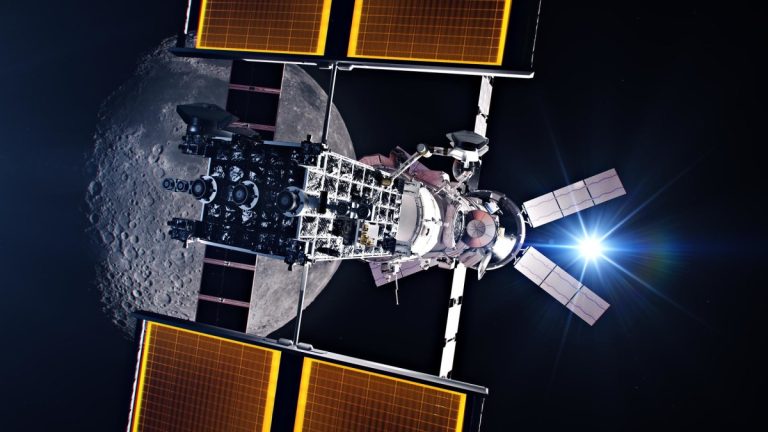
No borders in the final frontier (Image Credit: Space News)
Gazing at the night sky is one of the most essential human experiences. But when we consider the state of the modern space industry, a sense of irony creeps in. The sky above is vast — representing limitless possibilities. Our approach to exploring it has been frustratingly limited. For decades, we’ve allowed barriers to keep the space industry and its opportunities closed off to all but a select few.
This exclusivity isn’t just unfair; it’s actively hindering our progress as an industry, as a scientific community and, in the grandest sense, as a species.
Consider this: since the space industry began in earnest in the mid-20th century, nearly 80% of astronauts have come from just three countries: Russia, China and the United States. These same nations control more than 80% of in-space assets. This inequality extends to gender and racial lines. As of 2021, women made up only 20% of the space industry, and in that same year, only 30% of NASA employees were nonwhite.
It’s no secret how we got here: ever since the first Sputnik launch, the skies have been a critical domain for national security interests. Military objectives and national jockeying have always driven the growth of the industry. The societal inequalities and power dynamics that affect academia, politics and business are enhanced in a field that sits at the crossroads between all three. This status quo is not just disappointing; it’s dangerous. By limiting participation, we’re missing out on a wealth of diverse perspectives and innovative ideas.
To understand and act upon the potential of the next frontier, we need to move beyond the handful of state-controlled space agencies and billionaire-funded ventures that currently run the industry. We need to create pathways to participation that are not contingent on nationality, socioeconomic background, or academic discipline.
This isn’t just about fairness; it’s about maximizing collective potential. Imagine the breakthroughs that could be achieved if we tapped into the full spectrum of human ingenuity and creativity. By democratizing access to space, we could accelerate scientific progress and move closer to unlocking the solar system’s vast resources for the benefit of all humanity.
But how do we make this vision a reality? It starts on the ground floor, building up educational pipelines in regions that have historically lacked access to space exploration and research. By fostering the next generation of space enthusiasts worldwide, we can build a global community of innovators ready to tackle the challenges of exploration.
As emerging space agencies gain momentum, international collaboration must also play a key role. The expertise of established space agencies can be combined with the dynamic thinking and enthusiasm of emerging ones, facilitating a culture of knowledge transfer and giving smaller nations a stake in our collective space future. Open-source space technologies and platforms can take this sense of collective progress even further.
Of course, none of this work comes for free, and funding models will likely need to shift. For too long, space funding has been tied up with defense budgets and the dynamics of the contract ecosystem — this has only contributed to the anemic state of the industry. It’s time to think bigger and look into alternatives. Blockchain technology and crowdfunding platforms offer exciting possibilities for decentralizing space research and exploration. They allow individuals from around the world to directly participate in and benefit from space projects, breaking down the financial barriers that have long kept space the domain of wealthy nations and individuals.
Critics might argue that space exploration is too complex and dangerous to democratize. They’ll say that only large, well-funded organizations can handle the risks and challenges involved. But it’s precisely because of these challenges that we need to broaden our pool of problem-solvers. The history of innovation is filled with breakthrough ideas from unexpected sources. Why should space be any different?
The truth is, we can’t afford to maintain the status quo. The challenges we face are too great to be left to a small group of nations and individuals. Space exploration can give us a unique and necessary perspective on the most pressing issues of our time — climate change, resource scarcity and the need for sustainable energy — and pave the way for novel solutions.
As members of the space industry, we have a responsibility to lead this change. We must challenge the existing power structures and advocate for more inclusive policies and practices. We need to create mentorship programs, support STEM education in underserved communities, countries and regions and champion diversity in our own organizations.
It’s time we broke down the barriers that have kept space exploration an exclusive club for far too long. By democratizing access to space, we can unleash a new era of innovation, discovery and progress. The stars are calling — let’s give everyone the chance to answer.
Sam Hutchison is an aerospace entrepreneur. As Chairman of Reaction Engines, Inc. and Director Of Corporate Development at Reaction Engines Ltd., he raised over $100 million to develop space propulsion technology, initiated a U.S.-U.K. collaboration on space access and hypersonic aircraft, and secured significant funding including a DARPA contract and a $70 million U.K. government grant for the SABRE engine. In 2022, he founded SERA, a decentralized space agency that aims to build a global community dedicated to space exploration and research.









